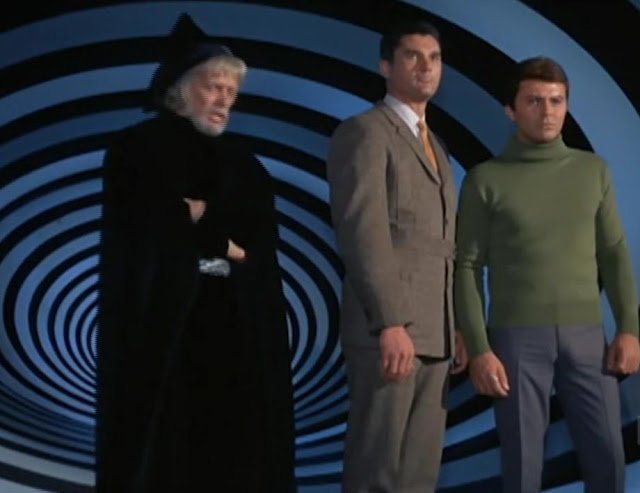A major aspect of my crossover-theory is that of alignment; the principle that every literary cosmos, particularly with regard to serial concepts, is dominated by one or more superordinate icons whose are the "center" of the narrative, while all subordinate icons orbit around the central icon or icons. In CROSSING GODS I gave several examples of innominate figures from mythology being "crossed over" with one another, and sometimes with newly created serial characters, the example of the latter being Atticus of "the Iron Druid Chronicles." In COSMIC ALIGNMENT PART 3 I spoke of a different form of innominate character, that of a fictionalized version of a historical personage. I asserted that no crossover took place when a narrative associated legendary characters already associated in history-- Jesse James and Cole Younger-- but that it was one if the author depicted an association between characters not known to have encountered one another, like Jesse James and Belle Starr.
Characters involved in time-travel, though, break down normative categories of alignment, and for that reason even figures I've rated as properly "legendary" don't rate as crossovers when they interact with characters who (more or less like authors) are no longer bound by restrictions of the time-space continuum. Thus, a goodie-good Billy the Kid meeting a version of Dracula? Crossover. A vampire-version of Billy the Kid, who has no real connection with the historical figure, meeting Bloodrayne? Crossover. But Billy the Kid, as portrayed by Robert Walker Jr. in the scene above, meeting one of the Time Tunnel guys? Not a crossover. And the same principle applies to works in which the time-travelers bring together assorted characters from different eras, as Billy the Kid, Napoleon and Socrates are brought together by those excellent time-dudes Bill and Ted.
The same applies to figures of myth and folklore, as when Bill and Ted take a bogus journey that brings them into contact with both the Easter Bunny and Satan, or when the Time Tunnelers meet the equally innominate figure of Merlin.
There's also a cognate figure of characters who summon up innominate characters without those icons leaving their own time-frame. In comics the hero who did this most often was Quality's Kid Eternity, who was forever enlisting characters from both myth (Nepture, Midas, Achilles) and from history (Annie Oakley, Abraham Lincoln). None of these would even be charisma-crossovers, either with one another or with Kid Eternity.
However, unlike the time travelers Kid Eternity did possess the power to plumb the vasty deeps of fiction as well-- and so, when he conjured up Sherlock Holmes or (more amusingly) Blackhawk, THOSE would count as crossovers with nominative icons.






No comments:
Post a Comment